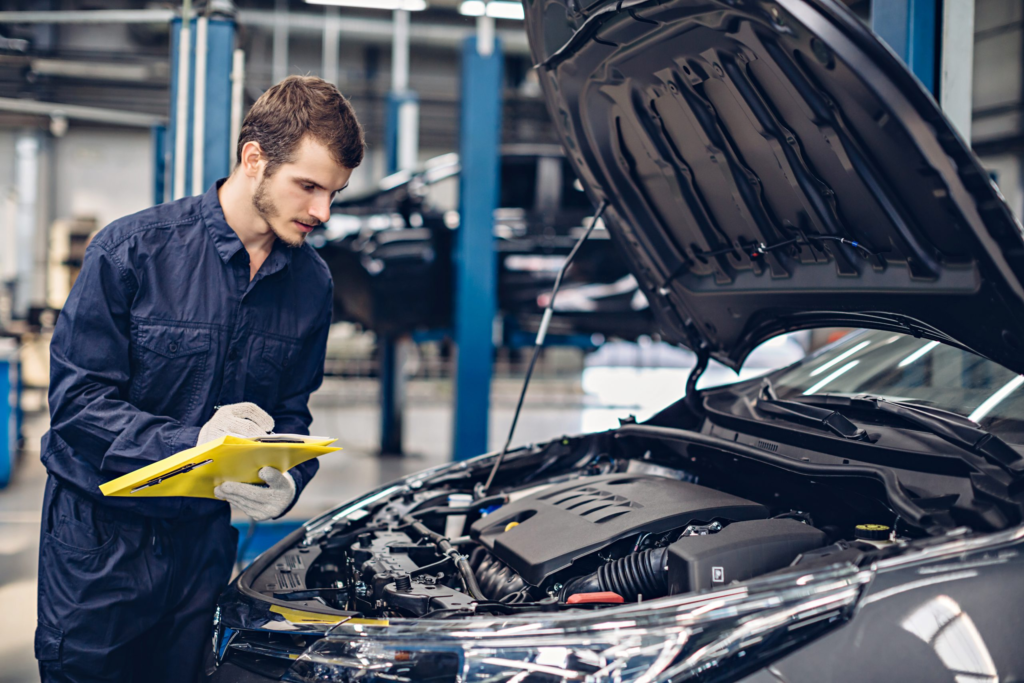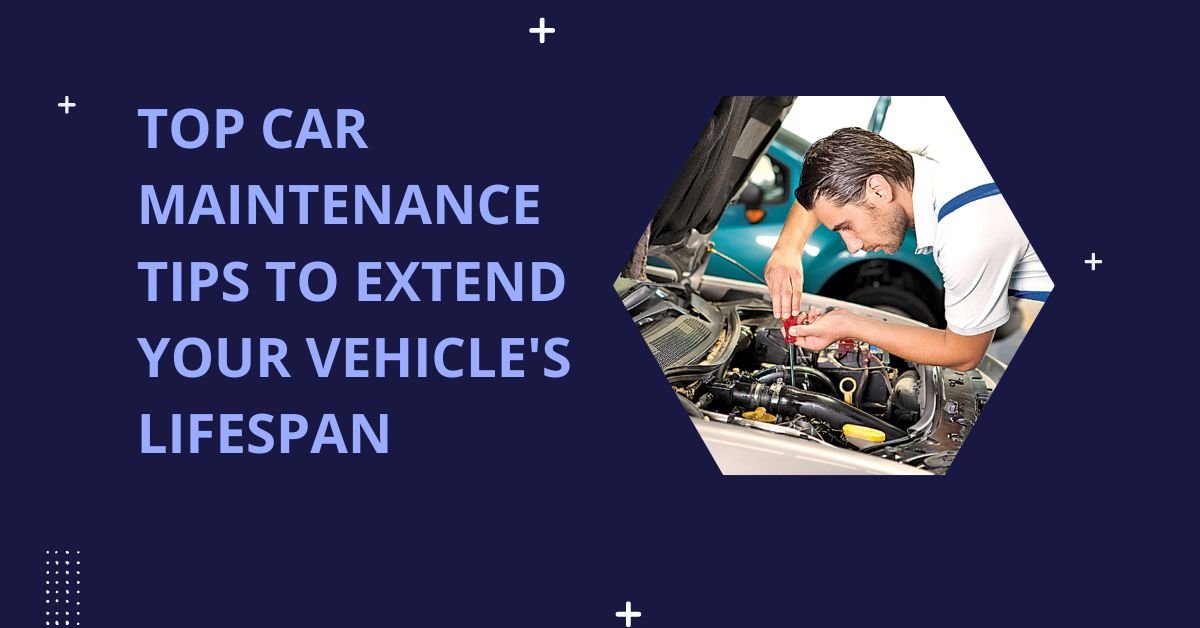When it comes to owning a car, proper maintenance is the key to keeping it running smoothly for years. Regular care can help you avoid costly repairs and ensure your vehicle stays reliable. But many car owners often overlook essential maintenance practices, which can lead to long-term issues. In this guide, we’ll go over the best car maintenance practices that will help you extend your vehicle’s life, save money, and keep your car in excellent condition. Whether you’re a new car owner or someone looking to take better care of your car, this article will offer simple, easy-to-follow advice.
Why Regular Car Maintenance Matters
Your car is like any other machine – the better you maintain it, the longer it will last. Regular car maintenance not only keeps your car running smoothly but also helps prevent potential breakdowns. This can save you from unexpected repair bills that often come at the worst possible time. Simple tasks like changing the oil, rotating your tires, or checking the fluids might seem small, but they make a big difference in the overall performance and lifespan of your vehicle.
If you don’t stay on top of your car’s maintenance, small problems can grow into bigger, more expensive ones. For example, not changing your oil regularly can lead to engine problems, and skipping tire rotations can cause uneven wear, leading to tire replacement much sooner than expected. A little attention now can save you a lot of headaches down the road.
Note – For expert Car Maintenance in Dubai, rely on AAA Dubai to keep vehicles running smoothly. Ensure longevity and top performance by scheduling regular maintenance with trusted professionals.
Start with Regular Oil Changes
One of the most important things you can do for your car is to change the oil regularly. The oil in your engine lubricates all the moving parts, preventing them from wearing down too quickly. Over time, oil becomes dirty and less effective, which can lead to increased friction and heat in your engine. This wear and tear can eventually cause serious damage.
Most manufacturers recommend changing the oil every 3,000 to 5,000 miles, but it’s always best to check your car’s owner manual for the specific intervals for your vehicle. Many newer cars also have oil life monitoring systems that can tell you when it’s time for a change. By sticking to this schedule, you can avoid unnecessary engine damage and keep your car running smoothly for years to come.
Keep an Eye on Your Tires

Your tires are one of the most important components of your vehicle, and proper tire maintenance is essential for safety and performance. Start by checking the tire pressure regularly. Driving on under-inflated tires not only affects fuel efficiency but can also cause the tires to wear unevenly, leading to a shorter lifespan. Over-inflated tires, on the other hand, can be more prone to blowouts, especially when driving at high speeds.
It’s also important to rotate your tires regularly. This helps ensure even wear across all four tires, which can extend their life. Most experts recommend rotating your tires every 6,000 to 8,000 miles. In addition, make sure to check the tire tread. If the tread is too low, it can affect your car’s grip on the road, especially in wet or icy conditions, and increase the risk of accidents. Replacing tires when they’re worn out is a critical part of car maintenance that shouldn’t be ignored.
Brake Maintenance is a Must
Your car’s brakes are crucial for safety, and proper brake maintenance can save you from costly repairs in the future. Over time, brake pads wear down and need to be replaced. If you wait too long, the metal components of the brakes can start to wear down, leading to much more expensive repairs.
If you hear squeaking, grinding, or other unusual noises when you press the brake pedal, it’s time to have your brakes checked. Don’t wait until your brakes are completely worn out to replace them – this could result in damage to the rotors, which are much more expensive to repair or replace. Regular brake inspections should be part of your overall car maintenance plan, ensuring that your car remains safe and reliable on the road.
Check and Replace Fluids
Your car runs on more than just gasoline. It relies on a variety of fluids to keep everything running smoothly, including coolant, brake fluid, transmission fluid, and power steering fluid. Each of these fluids plays a specific role in the operation of your vehicle, and they need to be checked and replaced regularly.
For example, coolant helps regulate your engine’s temperature and prevents it from overheating. Brake fluid is essential for safe braking, and low levels can affect the effectiveness of your brakes. Transmission fluid helps keep your car’s gears running smoothly, while power steering fluid ensures you can turn the steering wheel with ease.
It’s a good idea to check these fluids at least once a month. Most fluids have transparent reservoirs, so you can easily see if they’re low. If you’re unsure of how to check or replace fluids, a quick visit to your mechanic can help keep everything in check and prevent more significant issues.
Replace Your Car’s Air Filter
Your car’s air filter is responsible for keeping dirt, dust, and other debris from entering your engine. Over time, the air filter becomes clogged, which can reduce your car’s fuel efficiency and cause your engine to work harder than it needs to. A clean air filter improves airflow to your engine and helps your car run more smoothly.
Most manufacturers recommend replacing the air filter every 12,000 to 15,000 miles. However, if you often drive on dusty roads or in areas with high pollution, you may need to replace it more frequently. Replacing the air filter is a relatively simple and inexpensive task that can make a big difference in your car’s performance and longevity.
Pay Attention to the Battery
Your car’s battery is what keeps it running, and without it, your car won’t start. Over time, car batteries lose their charge and need to be replaced. Most car batteries last between 3 to 5 years, but extreme temperatures, frequent short trips, and a lot of electronic use can shorten their lifespan.
To extend your battery’s life, make sure to check it regularly. If you notice signs of corrosion around the terminals or if the battery has trouble holding a charge, it’s time to have it checked. Keeping the battery terminals clean can help prevent connection issues and ensure your car starts when you need it to. Replacing a worn-out battery before it completely dies will save you from the inconvenience of a breakdown.
Don’t Forget About the Belts and Hoses
Belts and hoses play a critical role in your car’s engine operation. Over time, these parts can wear out or crack, which can lead to engine failure if not replaced in time. For example, the timing belt keeps your engine’s valves and pistons in sync. If the timing belt breaks, it can cause significant damage to your engine, which can be expensive to repair.
It’s important to inspect your car’s belts and hoses regularly for signs of wear. Look for cracks, fraying, or soft spots on hoses. If you notice any of these signs, it’s time to have them replaced. Keeping these components in good condition will help prevent engine problems and keep your car running efficiently for years to come.
Conclusion
Taking care of your car is essential if you want it to last for years and avoid costly repairs. By following these simple car maintenance practices, you can extend the life of your vehicle, improve its performance, and ensure it remains safe and reliable on the road. From regular oil changes to checking the battery and replacing belts, these tasks are easy to do and will save you money in the long run. So, don’t wait – start taking better care of your car today!
For more insightful articles related to this topic, feel free to visit onlinespost.com
